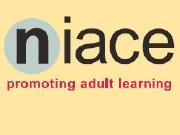Third of adults have not participated in learning since leaving full-time education, says survey

More than one-third of adults have not participated in learning since leaving full-time education, a survey has revealed.
The annual survey by the National Institute of Adult Continuing Education (NIACE) also found that 62 per cent of adults have not participated in learning in the last three years – a five per cent decline since 2010.
The figures, which come during Adult Learners’ Week, highlight the impact of socio-economic class on education, which is something that has been observed in previous NIACE surveys.
Those in the highest socio-economic classes were therefore seen to be most likely to participate in learning.
NIACE chief executive David Hughes expressed his disappointed in response to the new statistics.
“Participating in learning can help people secure work, stay and flourish in their jobs, keep healthy and play a positive role in their community,” said Hughes.
“All of those are even more important now with a tough labour market, an ageing population and stressed communities. So it is disappointing that participation in learning is declining, with many of the people who could most benefit missing out.”
Within the survey, undertaken with 5,237 adults, aged 17 and over, learning was defined as meaning practising, studying or reading about something. It was also understood to mean being taught, instructed or coached so that someone can develop skills, knowledge, abilities or understanding of something.
The survey highlighted the contrast between those looking for employment – where 41 per cent were learning, compared to those outside of the labour market who were not seeking employment – where only 24 per cent were learning.
Hughes added: “Our survey shows that you are much less likely to take part in learning if you are retired, or outside of the labour market, if you are in a low skilled job, or if you didn’t do well in school.
“We know from this year’s Adult Learners’ Week award winners – like all previous winners – that when people are given the right opportunities then their lives really do change for the better.
“What’s needed now is for policy-makers, providers, businesses, unions and charities to work together to encourage more people to take up learning.”
Other findings from the survey included the fact that participation in learning continues to decline with age, and that those who stayed on in initial education are more likely to participate in learning than those who left at the earliest opportunity.
Additionally, 41 per cent of people said that they were likely to take up learning in the future; whereas 56 per cent say they are unlikely to do so.
A national policy conference to explore current and emerging challenges and approaches to widening participation in adult education will be held by NIACE and The Open University on Tuesday 15 May, as part of Adult Learners’ Week. The survey will be discussed in more detail at the conference.
Linsey Humphries






Responses